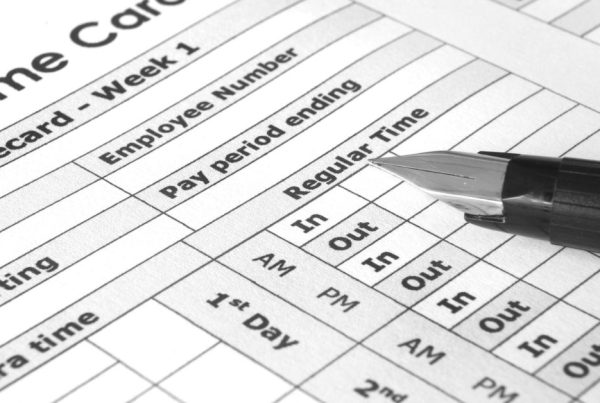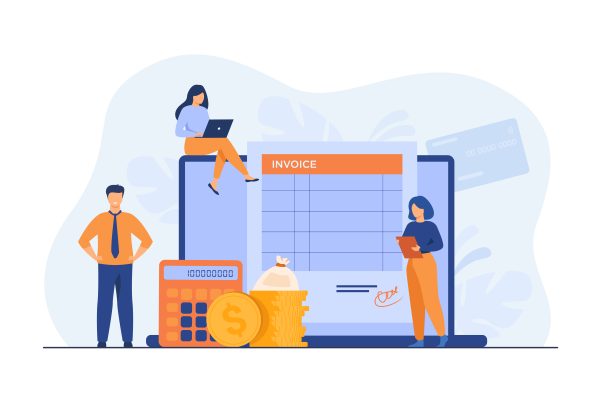
Accurate project estimates and planning are essential for the success of IT and software development firms. Leveraging data analytics in time tracking can provide invaluable insights into work patterns, resource utilization, and project progress, helping managers make informed decisions and improve project efficiency. By harnessing the power of time tracking data, firms can enhance their project estimates, ensure optimal resource allocation, and achieve better outcomes through data-driven planning and continuous monitoring.
The Importance of Accurate Project Estimates and Planning
Accurate project estimates and meticulous planning are the bedrock of successful project management in IT and software development firms. These processes are essential for predicting the time, resources, and budget needed to deliver a project (source). Effective project estimates enable project managers to allocate resources efficiently, set realistic deadlines, and manage stakeholder expectations. Precise planning ensures that projects stay on track, meet their objectives, and deliver value to clients.
Project managers in the IT and software development sectors often grapple with multiple challenges that can impede accurate project estimates and planning. Some of the most prevalent challenges include:
- Scope Creep: One of the most common issues is scope creep, where project requirements expand beyond the initial scope. This can lead to increased time and costs if not managed effectively (source).
- Lack of Communication: Effective communication is critical for project success, yet it is often lacking. Miscommunication can lead to misunderstandings, conflicts, and delays (source).
- Unclear Goals and Objectives: Projects often suffer from vague or shifting goals, making it difficult to plan and estimate accurately. Clear, well-defined objectives are crucial for setting realistic timelines and resource needs (source).
- Inadequate Team Skills: The skill levels of team members can significantly affect project timelines. Projects may be delayed if the team lacks the necessary expertise or requires additional training (source).
- Poor Budgeting: Inaccurate cost estimates can lead to budget overruns, putting financial strain on the project and the organization (source).
Inaccurate project estimates can have severe consequences for IT and software development firms:
- Project Delays: When estimates are overly optimistic or fail to account for all variables, projects often experience delays. These delays can disrupt schedules, cause client dissatisfaction, and affect the company’s reputation (source).
- Budget Overruns: Misestimating project costs can result in budget overruns, leading to financial challenges and the need to secure additional funding. This not only strains the project’s finances but can also impact other projects and the overall financial health of the organization (source).
- Resource Mismanagement: Inaccurate estimates can lead to poor resource allocation, with either too many or too few resources assigned to tasks. This can cause bottlenecks, reduce productivity, and increase stress on team members (source).
Accurate project estimates and thorough planning are essential for mitigating these risks and ensuring project success. Leveraging data analytics in time tracking can provide valuable insights to improve project estimates and planning, ultimately enhancing project management efficiency and outcomes.
Role of Data Analytics in Time Tracking
Data analytics involves the systematic computational analysis of data to uncover patterns, correlations, and trends that provide actionable insights. In the context of time tracking, data analytics helps businesses analyze the time data collected from employees and projects to make informed decisions (source).
Data analytics in time tracking is crucial for understanding work patterns, identifying bottlenecks, and improving productivity. By analyzing the hours logged for various tasks, businesses can gain insights into how time is spent across different projects and departments, allowing for better resource allocation and project planning (source).
Understanding Work Patterns
Data analytics helps in visualizing and understanding work patterns over time. For instance, businesses can track the time spent on different tasks and identify which activities consume the most resources. This information can help managers redistribute workloads, optimize task assignments, and ensure that employees are working efficiently on high-priority tasks (source).
Identifying Bottlenecks
One of the significant benefits of data analytics in time tracking is its ability to identify bottlenecks in workflows. By analyzing time-tracking data, businesses can pinpoint stages in the project where delays occur frequently. This allows managers to implement strategies to mitigate these delays, such as reallocating resources or adjusting timelines (source).
Improving Productivity
Data analytics provides insights into productivity levels by highlighting how much time employees spend on productive versus non-productive tasks. For example, if a significant portion of time is spent on administrative tasks rather than core project activities, managers can take steps to automate or streamline these tasks. This leads to enhanced overall productivity and better project outcomes (source).
Key Metrics and Data Points
Here are some key metrics and data points that can be tracked and analyzed in time tracking to garner meaningful insights:
- Time Spent on Tasks: This metric helps in understanding how much time is devoted to various tasks and activities. It can reveal inefficiencies and areas needing improvement.
- Resource Utilization: This metric measures how effectively the workforce is being used. High utilization rates indicate efficient use of resources, while low rates may suggest underutilization or overstaffing.
- Project Progress: Tracking the progress of projects over time helps in ensuring that they are on schedule. It also aids in forecasting future milestones and deadlines.
- Billable vs. Non-Billable Hours: Analyzing the ratio of billable to non-billable hours helps in assessing the profitability of projects and the efficiency of resource allocation.
- Employee Productivity: This involves measuring the output of employees relative to the time spent. Higher productivity rates indicate a more efficient workforce.
Incorporating data analytics into time tracking can transform how businesses manage their projects and resources. By providing clear insights into work patterns, identifying bottlenecks, and enhancing productivity, data analytics enables more accurate project estimates and better planning. Minute7, with its robust time tracking and expense reporting features, integrates seamlessly with QuickBooks to help businesses leverage these insights effectively. Through comprehensive data analytics, Minute7 empowers businesses to make informed decisions, optimize resource allocation, and improve overall project management efficiency (Minute7).
Leveraging Time Tracking Data for Better Project Estimates and Planning
Historical time tracking data can significantly enhance the accuracy of project estimates. By analyzing past projects, managers can identify patterns and trends that inform future expectations. This data provides a reliable foundation for predicting the time and resources required for similar tasks, reducing the uncertainty and risk associated with project planning. For instance, historical data on the duration of specific tasks helps managers allocate appropriate timeframes for future projects, leading to more realistic schedules and budgets (source).
Moreover, historical data helps in benchmarking. By comparing current project estimates with previous ones, managers can adjust their plans to reflect actual performance, ensuring more accurate forecasts. This approach is particularly beneficial in industries with repetitive tasks, such as IT and software development, where past performance is a strong indicator of future outcomes (source).
Data-driven insights play a crucial role in resource allocation and project scheduling. By leveraging data analytics, project managers can make informed decisions about resource distribution, ensuring that team members are neither overburdened nor underutilized. This optimization leads to increased productivity and cost-efficiency (source).
For instance, data analytics can reveal patterns in team performance, allowing managers to allocate resources to tasks where they are most effective. This proactive approach prevents bottlenecks and ensures that projects stay on track. Additionally, data-driven scheduling helps in anticipating potential delays by identifying critical paths and adjusting timelines accordingly (source).
Continuous monitoring and real-time data analytics are indispensable for maintaining project efficiency. Real-time data provides up-to-date information on project progress, enabling managers to identify and address issues as they arise. This immediate feedback loop allows for timely adjustments, ensuring that projects remain on schedule and within budget (source).
Real-time data analytics also aids in risk management. By continuously monitoring project variables, managers can detect early signs of potential problems, such as resource shortages or task delays, and implement corrective measures. This proactive approach minimizes disruptions and enhances the overall quality of project deliverables (source).
Minute7’s time tracking and expense reporting solutions are perfectly positioned to help IT and software development firms leverage data analytics for improved project estimates and planning. By integrating seamlessly with QuickBooks, Minute7 ensures that historical data is easily accessible for future project planning. The platform’s robust reporting features provide valuable insights for resource allocation and project scheduling, while real-time data analytics enable continuous monitoring and adjustment. With Minute7, businesses can enhance their project management efficiency, leading to more accurate estimates and successful project outcomes.
Empowering Project Management with Minute7
In conclusion, leveraging data analytics in time tracking offers IT and software development firms an invaluable tool for enhancing project estimates and planning. Accurate project estimates are crucial for avoiding delays, budget overruns, and resource mismanagement. Data analytics provides the insights needed to understand work patterns, identify bottlenecks, and improve productivity. By analyzing historical time tracking data, managers can create more reliable project timelines and resource allocations, ensuring optimal efficiency and cost-effectiveness.
Minute7 stands at the forefront of this transformation. With its seamless integration with QuickBooks, Minute7 allows businesses to harness the power of data analytics for superior project management. The platform’s comprehensive features—ranging from detailed timesheets and expense tracking to robust reporting and real-time analytics—empower managers to make informed decisions that drive project success.
Minute7’s user-friendly interface ensures that even complex data is accessible and actionable, helping businesses to continuously monitor and adjust their strategies in real-time. This not only enhances project accuracy but also boosts overall productivity and profitability.
By choosing Minute7, IT and software development firms can confidently navigate the complexities of project management with data-driven insights, ensuring their projects are delivered on time, within budget, and with the highest quality. Embrace Minute7 to transform your project estimates and planning, and unlock the full potential of your team’s productivity and efficiency.
Learn more about how Minute7 can revolutionize your project management.



